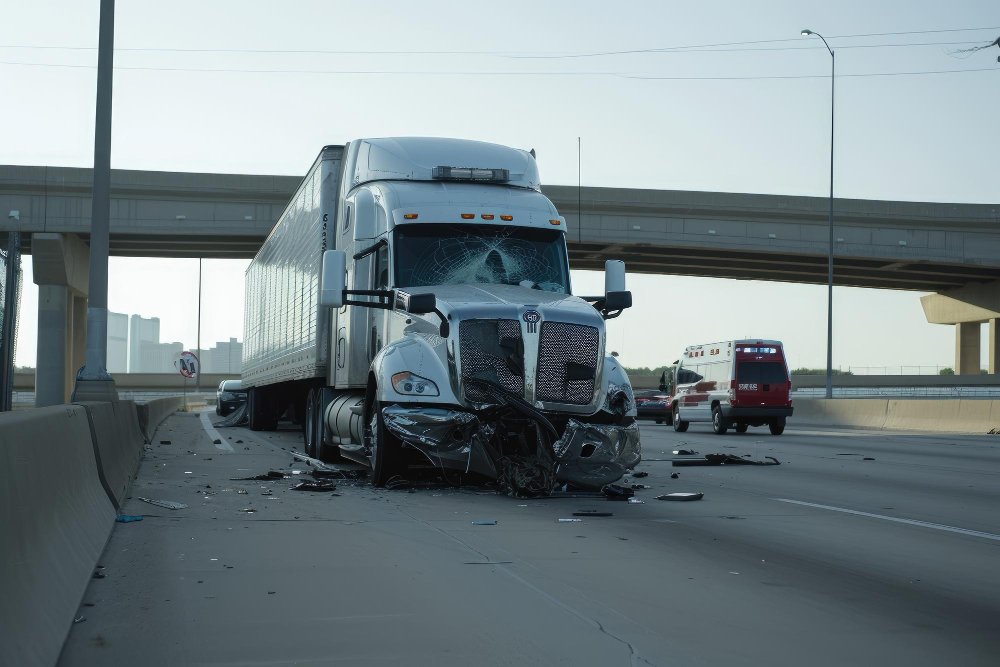How to Take Care of a Denied Truck Accident Claim
Truck accidents can be extremely terrifying. Even in relatively minor accidents, a truck’s huge size and mass can result in significant injuries. Knowing you are entitled to fair compensation is essential if you suffered injuries in a truck accident.
Unfortunately, dealing with several insurance companies after a truck collision can be daunting. Establishing fault and the accuracy of your insurance claim often presents significant challenges. Therefore, it’s crucial to understand the steps you can take to address a denied truck accident claim effectively. That is why you should contact Stewart Miller Simmons Trial Attorneys to ensure everything goes in the right direction.
Why Truck Accident Claims are Complicated
Truck accidents differ significantly from car accidents due to several factors:
- Size and Weight: The immense size and weight of trucks can cause severe damage and injuries, even in minor accidents.
- Multiple Parties: Unlike car accidents, truck accidents involve multiple parties, including the truck driver, trucking company, cargo loaders, and manufacturers.
- Complex Regulations: Trucking companies must adhere to numerous federal and state regulations, complicating the investigation and claims process.
- Severe Injuries: Injuries from truck accidents are often more severe, leading to higher medical costs and longer recovery periods.
Handling a Denied Truck Accident Claim

Insurance companies can be reluctant to provide a reasonable settlement or may even deny your claim altogether. Here’s what you need to know and do if your truck accident claim is denied.
Common Reasons for Denial
Understanding why your claim was denied is the first step in addressing the issue. Common reasons for denial include:
- Failure to Notify: Insurance policies often have specific notice requirements. The claim might be denied if the accident wasn’t reported within the stipulated time frame.
- Lapse in Coverage: If the trucking company or driver failed to pay their insurance premium on time, the coverage might have lapsed, resulting in denial.
- Disputed Liability: The insurance company may argue that their policyholder was not at fault or that you were partially or fully to blame for the accident.
- Insufficient Documentation: Lack of adequate evidence to support the claim can lead to denial. This includes medical records, police reports, and witness statements.
- Policy Exclusions: The insurance policy may have specific exclusions that prevent certain types of claims from being covered.
Steps to Take After a Denied Claim
- Review the Denial Letter: Carefully read the denial letter to understand the reasons for the denial. This will help you address any issues directly.
- Gather Additional Evidence: Collect any additional evidence that supports your claim. This could include medical records, accident reports, witness statements, and photographic evidence.
- Seek Legal Assistance: Consult with a truck accident lawyer who can review your case, help you understand your rights, and guide you through the appeals process.
- File an Appeal: Most insurance companies have an appeals process. Submit a formal appeal, any new evidence, and a detailed explanation of why the claim should be reconsidered.
- Consider Legal Action: If the appeal is unsuccessful, you may need to file a lawsuit to pursue the compensation you deserve. Your lawyer can advise you on the best course of action.
Calculating Your Potential Damages
Calculating the full extent of your damages is essential to ensure you receive fair compensation. Potential damages include:
- Medical Expenses: This covers all past, present, and future medical costs related to the accident, including hospital bills, medication, rehabilitation, and any necessary medical equipment.
- Lost Wages: Compensation for income lost due to the inability to work after the accident. This includes both past and future lost earnings.
- Pain and Suffering: Non-economic damages for physical pain, emotional distress, and reduced quality of life.
- Property Damage: Compensation for repairs or replacement of your vehicle and any other personal property damaged in the accident.
- Punitive Damages: In cases where the defendant’s actions were particularly reckless or malicious, you may be entitled to punitive damages designed to punish the wrongdoer and deter similar conduct in the future.
Collecting Evidence
Strong evidence is crucial to support your claim and challenge a denial. Important types of evidence include:
- Accident Scene Evidence: Photographs and videos of the accident scene, vehicle damage, and any visible injuries.
- Police Reports: Official reports from law enforcement detailing the accident and any citations issued.
- Medical Records: Comprehensive documentation of all medical treatment received due to the accident.
- Witness Statements: Testimonies from individuals who witnessed the accident.
- Expert Testimonies: Opinions from accident reconstruction experts, medical professionals, and other relevant specialists.
Legal Considerations
Navigating the legal landscape after a truck accident can be complex. Here are some key considerations:
- Statute of Limitations: Each state has a specific time limit for filing a lawsuit. Missing this deadline can bar you from pursuing compensation.
- Comparative Negligence: Some states follow comparative negligence laws, meaning your compensation could be reduced if you are found partially at fault for the accident.
- Federal Regulations: The trucking industry is subject to federal regulations, such as those enforced by the Federal Motor Carrier Safety Administration (FMCSA). Understanding these regulations can be crucial in proving liability.
- Insurance Policy Terms: Thoroughly review the terms and conditions of the relevant insurance policies to understand your coverage and any exclusions.
Working with a Truck Accident Lawyer
Given the complexities of truck accident claims, working with an experienced lawyer is often essential. Here’s how they can assist:
- Case Evaluation: A lawyer can thoroughly assess your case and help you understand your legal options.
- Evidence Collection: Lawyers have the resources to gather comprehensive evidence, including hiring experts and obtaining crucial documents.
- Negotiations: An attorney can negotiate with insurance companies on your behalf to seek a fair settlement.
- Litigation: If necessary, a lawyer can represent you in court to pursue the compensation you deserve.
- Compliance: Ensuring all legal procedures and deadlines are met, including filing necessary paperwork and adhering to court requirements.
Conclusion
Dealing with a denied truck accident claim can be overwhelming, but understanding the reasons for the denial and taking appropriate steps can significantly improve your chances of receiving fair compensation. By gathering strong evidence, calculating your damages accurately, and working with a skilled attorney, you can navigate the complexities of the claims process and pursue the justice and compensation you deserve.
Truck accidents can have devastating consequences, but you don’t have to face the aftermath alone. With the right legal support and a clear understanding of your rights, you can take effective action to address a denied truck accident claim and secure the financial recovery you need to move forward.

















